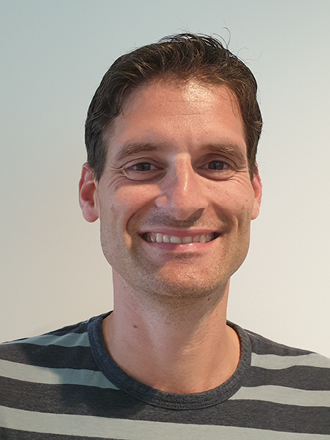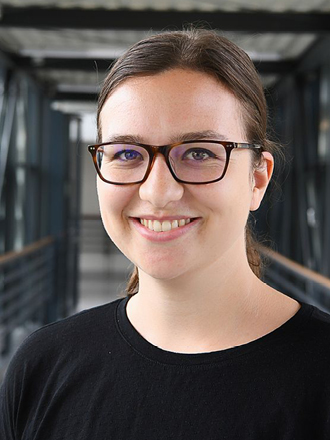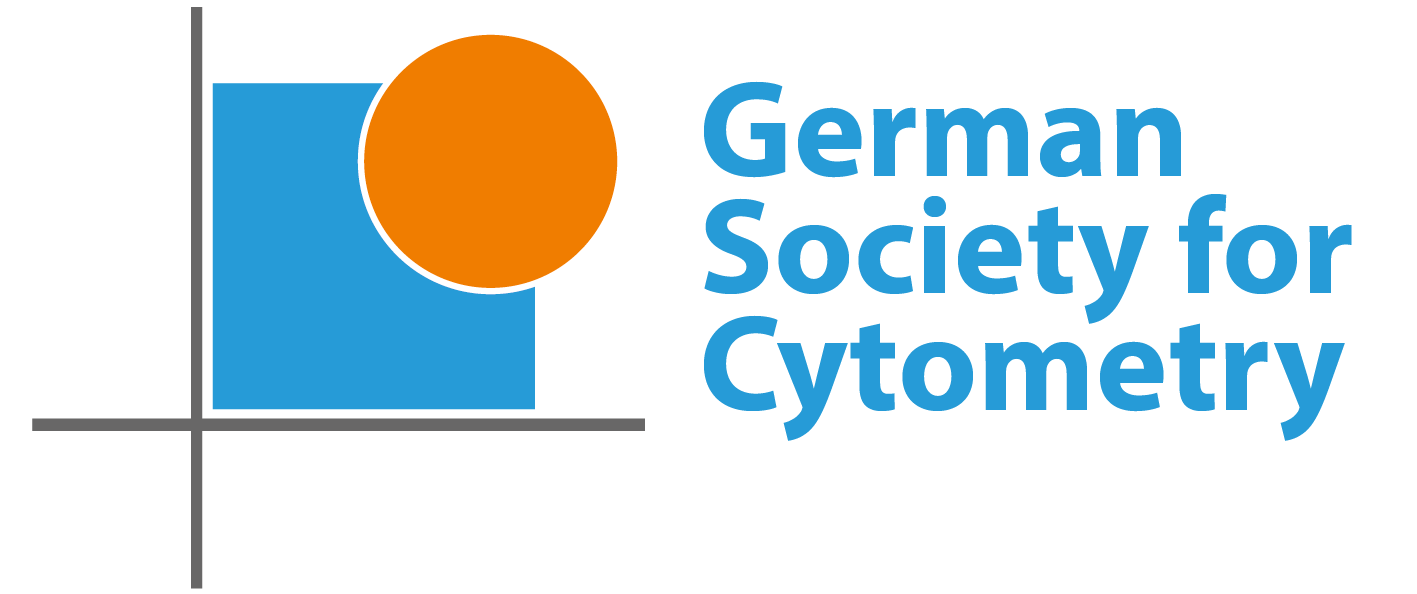Klaus Goerttler Session
Klaus Goerttler Session
Wednesday, September 20th, 2023, at 3:00 pm
Chair: Elisa Rosati, Klaus Goerttler Awardee 2022
Directly exploiting the immune system to fight disease is considered key for next generation precision medicine. Accordingly, recent years have seen the exponential arise of personalized immunotherapies and related research. In particular, T cell immunotherapies have started to draw attention not only in the context of cancer therapies but also in the context of infection, chronic inflammation and autoimmunity. Moreover, the concept of tolerogenic immunotherapy, aiming to induce regulatory T cell responses against for example autoimmune antigens, increased even more the possible range of applications of such therapeutic approaches. Therefore, innovative technologies are necessary to deeply investigate the different aspects of T cell immunity including (i) mechanisms of interaction with antigen presenting cells, B cells and others as well as (ii) potentially exploitable pathways of differentiation into regulatory or conventional T cell phenotypes in conjunction with (iii) the investigation of possible therapy delivery systems. This year Klaus Goerttler Session will provide conceptual and technological insights in some of such key topics in order to be able to answer the many open questions in the field and support the development of new research and therapeutic strategies.
Annika Betzler, this year’s winner of the Klaus Goerttler Prize, will be honoured and she will present her research.

Enzymatic labeling of cell cell interactions in vivo
Affiliation
Laboratory of Synthetic Immunology, Department of Surgery, Oncology and Gastroenterology, University of Padova, Padova, Italy
Veneto Institute of Oncology IOV-IRCCS, Padova, Italy
Abstract
Interactions between different cell types are key for immune function. By coupling chemical and synthetic biology with mouse genetics, we developed innovative technologies to study cell-cell communication in the immune system and beyond. We will show how these approaches can be exploited to dissect interactions between dendritic cells and T cells in the context of T cells activation.
Biosketch
Giulia Pasqual obtained a PhD in Life Sciences from the University of Lausanne, Switzerland. From 2012 to 2018 she trained as a postdoctoral fellow in immunology, first at the Massachusetts Institute of Technology and later at the Rockefeller University, USA. Since 2019 she is professor of immunology at the University of Padova, Italy.

Single cell approaches to dissect antigen specific T-cell interactions in atherosclerosis
Affiliation
Div. of BioTherapeutic, LACDR, University of Leiden, Leiden, The Netherlands
Abstract
Atherosclerosis is a lipid-driven chronic inflammatory disease and the primary cause of cardiovascular diseases, including heart attack and stroke. Despite the successful introduction of lipid-lowering drugs, atherosclerosis is still a leading cause of death and there is an urgent need for novel therapeutic options targeting the inflammatory arm of this disease. We hypothesize that inflammation is sustained by self-reactive T-cells and this “autoimmune-like” component provides new therapeutic targets. Using single cell RNA sequencing we have mapped the major T-cell subsets in human atherosclerotic lesions. To identify whether these T-cell subsets are drivers of disease we have combined single cell RNA sequencing with TCR sequencing and identified distinct CD4+ T-cell subsets that show clonal expansion, plaque specific accumulation and recent antigen engagement. We compared these CD4+ T-cell subsets with RNA seq data from bonafide autoimmune disease such as psoriatic arthritis and showed clonally expanded CD4+ T-cells from atherosclerotic plaque greatly resemble expanded CD4+ T-cells from synovial fluid of PSA patients. Thus our work strongly suggests self-reactive CD4+ T-cells accumulate in atherosclerotic lesions and undergo antigen specific activation. To understand what drives this process we applied immunopeptidomics and screened epitopes presented by HLA molecules. We observed a large number of ApoB100 derived peptides presented in the plaque and selected they highest affinity binders to generate a peptide pool capable of detecting self-reactive CD4+ T-cells in CVD patients. We show that the size of the circulating ApoB100 specific CD4+ T-cell pool positively correlates with disease stage, suggesting these T-cells are associated with disease progression.
Biosketch
Bram Slütter obtained a PhD in pharmaceutical sciences from Leiden University in 2011. From 2010 to 2015 he trained as postdoctoral research fellow in the laboratory of John Harty at the Carver College of Medicine of the University of Iowa. He joined the academic staff of the Leiden Academic Centre for Drug Research of Leiden University in 2015 and is an associate professor since 2021. His research focuses on behavior of T-cells in inflammatory conditions, within an emphasis on cardiovascular disease. His group has made substantial contributions to the “auto-immune theory” in atherosclerosis and works on development of novel treatment strategies

Annika Betzler
Molecular characterization of the transcriptional co-activator BOB.1/OBF.1 in B versus T lymphocytes and its specific contribution to the Germinal Center Reaction
Affiliation
Department of Oto-Rhino-Laryngology, Ulm University Medical Center, Ulm, Germany & Core Facility Immune Monitoring, Ulm University, Ulm, Germany
Abstract
BOB.1/OBF.1 is a lymphocyte-specific transcriptional co-activator involved in octamer-dependent transcription. BOB.1/OBF.1 activates octamer-dependent transcription by its synergistic interaction with Oct proteins, thereby regulating the expression of genes essential for lymphocyte physiology.
We detected a novel previously unknown function of BOB.1/OBF.1, namely its involvement in Peyer’s patch (PP) development by affecting lymphotoxin signaling during embryonic PP organogenesis and postnatal lymphocyte homing by affecting the CXCL13-CXCR5 signaling axis. The most striking characteristic of BOB.1/OBF.1-deficient mice is the complete absence of germinal centers (GCs). To further elucidate the precise contribution of BOB.1/OBF.1 to the GC reaction, a mouse system, which allows the conditional deletion of BOB.1/OBF.1 at different stages of B cell development in the presence of immunocompetent T cells and vice versa, was established and analyzed. Thereby, a requirement of BOB.1/OBF.1 during complete B cell ontogeny for efficient GC formation was revealed. Our mouse model showed that the failure to form GCs is a GC B cell autonomous defect and not exclusively a consequence of defective early B cell maturation. Hitherto, the GC defect was mainly attributed to the defective B cell compartment, while the contribution of BOB.1/OBF.1 expression in T cells for the GC reaction was unknown. Analysis of our conditional mouse system proved that BOB.1/OBF.1 expression in T cells is also required for efficient GC formation. Consequently, the contribution of BOB.1/OBF.1 to the GC reaction cannot be exclusively attributed to its expression in B cells.
Biosketch
Annika Betzler obtained a BSc and MSc in Molecular Medicine at Ulm University and Friedrich-Alexander University Erlangen-Nuremberg. She did her PhD at Ulm University in the field of immunology focusing on B and T lymphocyte development and function. During her PhD thesis, she further elucidated the role of the transcriptional co-activator BOB.1/OBF.1 as well as the non-receptor tyrosine kinase Bruton’s tyrosine kinase (BTK) in adaptive immunity. Her work provided evidence that BOB.1/OBF.1 expression is required during complete B cell ontogeny, but also in CD4+ T cells for an efficient germinal center reaction, which was previously unresolved. Her postdoctoral work focuses on tumor immunology and additionally she became deputy of the Core Facility Immune Monitoring at Ulm University. The multi-parameter flow cytometry (> 30 color panels on Cytek Aurora) offered by the Core Facility will help to further elucidate fundamental immunobiological processes as a basis for the development of new therapeutic approaches.
